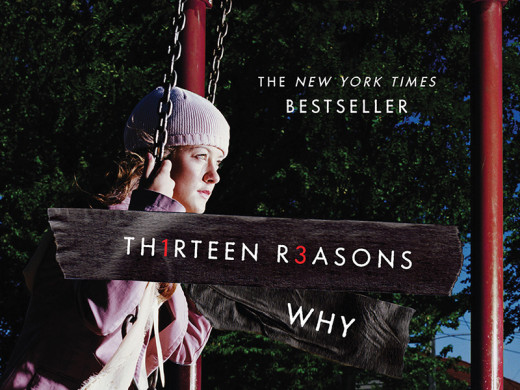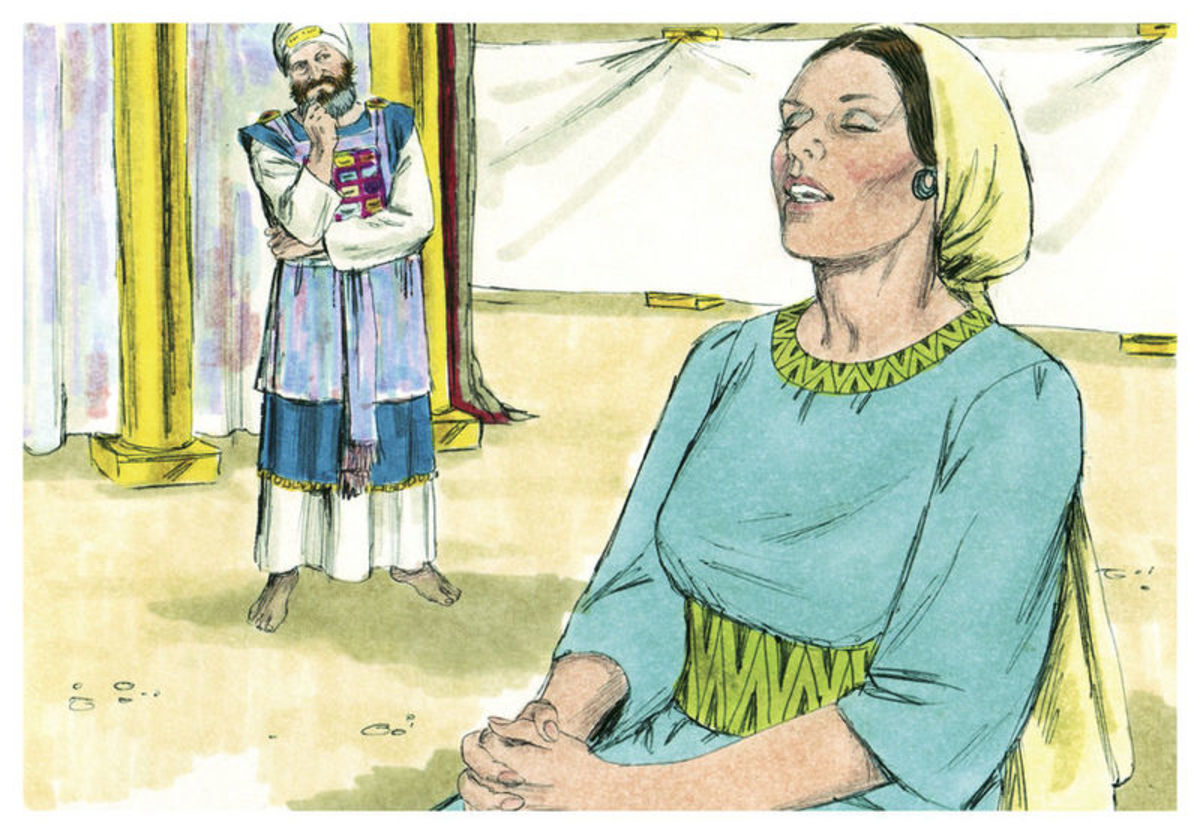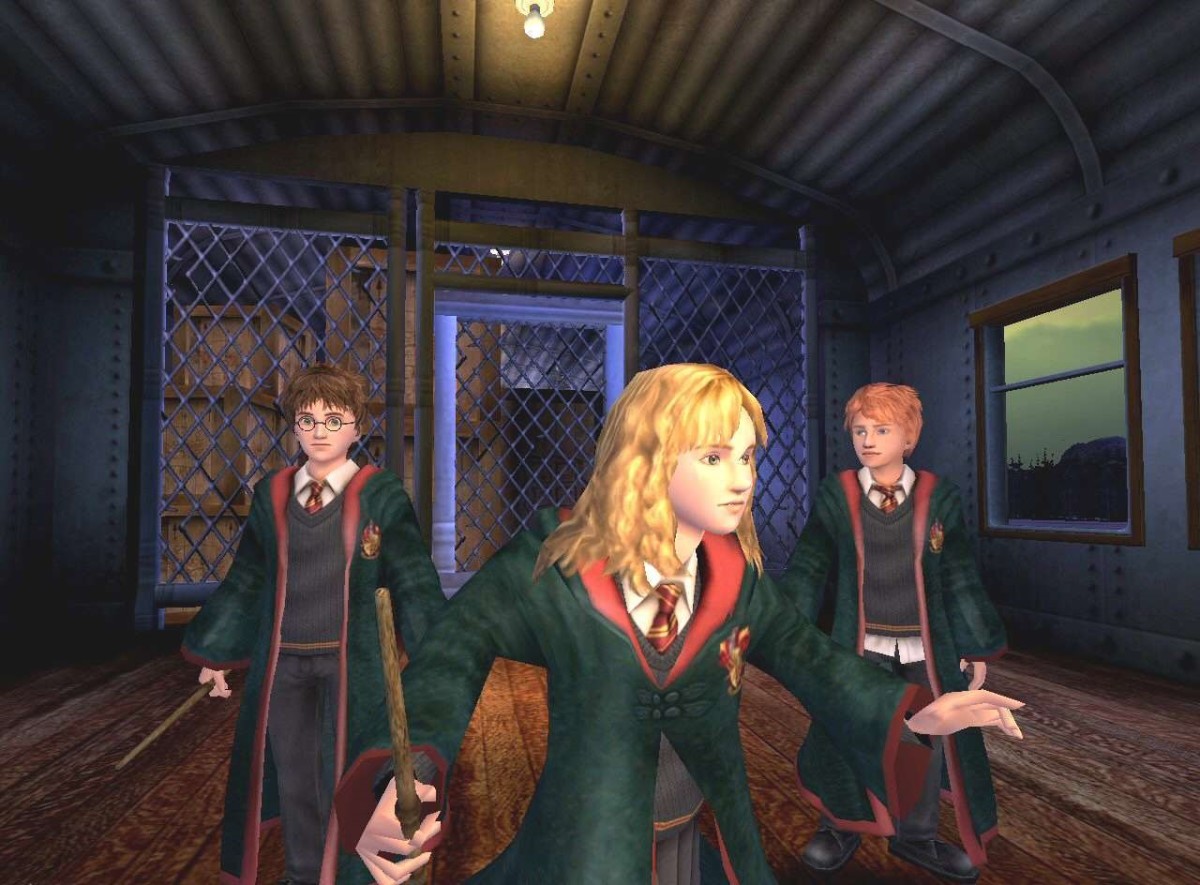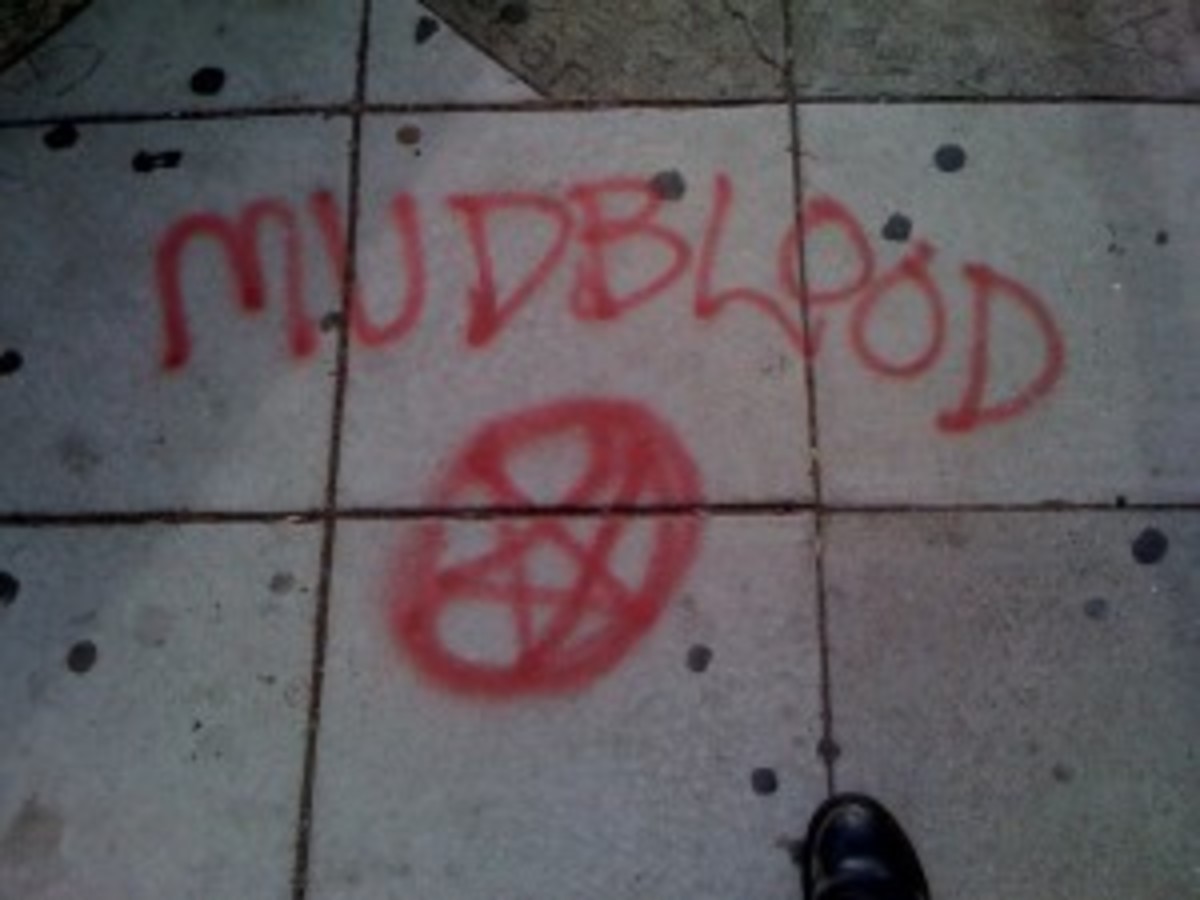Thirteen Reasons Why Jay Asher's Novel, Thirteen Reasons Why, Misses the Mark
Warning: Spoilers await you
Those who have at least heard about the novel are probably familiar with the basic plot outline. Clay Jensen, an irritatingly perfect and sweet high school student, receives a bundle of cassette tapes from his classmate and crush, Hannah Baker, who killed herself with "a handful of pills." The tapes detail the thirteen reasons why she chose to end her life. The reader follows Clay as he takes the journey to discovering why Hannah killed herself and what role he played in her decision to commit suicide.
As many of the issues that are presented by this novel cannot be discussed without revealing some of Hannah's secrets, it should go without saying that spoilers will be a big part of this review.
1. The novel presents suicide as a viable and appealing option.
In most cases, I would argue that fictional literature is not responsible for preaching lessons or morals. A story is just a story, and it is up to the reader to examine his or her own reactions to the text. However, young adult literature is the exception to the rule.
Perhaps one of the reasons I find most young adult novels so unappealing is the idea that they are written with a particular goal in mind, a goal which usually entails praising the benefits of friendship or family or sexual abstinence. Thirteen Reasons Why attempts to impress upon teens the consequences of their actions. Call someone a name in study hall? Well, that might be what pushes your peer over the edge. The novel's presentation of suicide is not only simplistic and trite, but it glamorizes the action.
Hannah feels like she cannot connect or communicate with her classmates while she is alive (although she doesn't really make much of an effort), so she decides that she will be heard after her death. She uses her suicide as a form of revenge and stands on it like a soapbox in order to tell people, "Look, this is what you did!" In an angst-filled, angry mind, that can seem appealing. Not only do you stop the pain, but you can use it to show other people how they made you feel. Because young adult literature is treated as if it is meant to portray some sort of message, readers are more likely to search for meaning in Thirteen Reasons Why. Unfortunately, the "message" is one that is dangerously encouraging to confused and angry readers.
Read an excerpt from the novel

Why do people attempt suicide?
- Why Do People Commit Suicide?
For a person who wants to commit suicide, the fear of the unknown in death is less than the fear of living with pain for the rest of their lives. - 6 reasons why people commit suicide
After a suicide attempt, the one question everyone asks without exception is simply, why? - Why Do People Kill Themselves? New Warning Signs | Psychology Today
This Psychology Today article describes recent research into why people choose to end their lives.
2. People do not attempt suicide due to a neat list of reasons.
As tempting as it is to attempt to find specific, discrete causes for suicidal tendencies, that's not quite how it works. Sure, there may be several factors contributing to a person feeling unable to cope with life, but the desire and plan to do it comes from a distorted perception of reality.
There are numerous articles and studies that show up just on the first page of Google results regarding why people might want to kill themselves, but none of them can claim that the convoluted reasoning of a suicidal mind can be boiled down into a simple and tidy list as the novel suggests. In the novel, all of Hannah's reasons build onto one another in a way that is just so neat and tidy. She points out connections and chains of events that wouldn't have happened if, say, Justin hadn't bragged about feeling her up when it never happened.
Hannah attempts to make it seem as if these thirteen occurrences, most of which are actually petty and insignificant, compound together to create the explanation for why she decided to commit suicide. I'd argue that the thought processes of someone who is depressed and far removed from reality cannot be dissected into a list of thirteen reasons. The reasons for Hannah's suicide are much more internal than external. It's not any of these experiences that push her toward her decision; instead, it's her perception of the events, the inability to cope with problems, and the overwhelming feeling of hopelessness that make her feel as if suicide is the only way out. The novel does not explore the idea that perhaps Hannah's reasons are not truly accurate. Instead, Clay takes Hannah's statements at face value.
The author, Jay Asher

3. Most of Hannah's reasons appear largely petty and insignificant.
I suppose it's callous of me to cut down anyone's reasons for making such a dramatic choice, even those of a fictional character, but I just didn't find most of Hannah's reasons as compelling enough to force her into that position. Of course, it's not really about what happened as much as how Hannah reacted to these perceived slights, but I argue that, other than the traumatic experience of witnessing a rape and being an unknowing part of a fatal car accident, Hannah's reasons undermine the serious emotional pain that a lot of young people go through. There are kids out there dealing with molestation, abusive family relationships, drug addiction, poverty, homelessness, and the list just goes on and on.
Hannah feels like she's isolated from her peers due to the rumors they have spread about her, which is unfortunate and important in its own right, but the manner in which she presents this made me just want to throw the book across the room. For instance, she blames Alex for naming her as the owner of the Best Ass in the Freshman Class, stating that he is responsible for continuing to besmirch her reputation and for encouraging people to objectify her. Sure, that was insensitive and belittling, but is it really one of the reasons why someone would kill his or herself? I doubt that. There's something else going on below the surface. High school, for many kids, is a lonely and confusing time. But, the thing is, most people survive it and develop skills and mechanisms in order to deal with mean people or cruel situations they encounter in their adult lives. It does get better, and this novel fails to present that idea. Instead, Asher relies on the buzzword of the day, bullying, to explain Hannah's drastic decision.
4. Hannah is cruel and unlikable.
Hannah, to be blunt, is not a good person. She is vengeful, cruel, and sadistic. The most obvious reason for this declaration is the appalling actions she takes to destroy the lives of others after she is gone. And this plan for revenge is not decided spur-of-the-moment. She takes time to record her story onto cassette tapes, create the maps, deliver the maps, and find a way of ensuring the people listen to all the tapes and then pass it on. This is plotted meticulously, and it becomes less about Hannah's loneliness and depression and about how she can get back at these people.
As if having a schoolmate who kills herself isn't difficult enough to deal with, Hannah hammers the point home by pointing out these people and saying, "You are responsible." I don't even have words for how horrible that is, how cruel and unforgiving. Many of the people Hannah list are just stupid teenagers who made a mistake and did something mean. They don't deserve to shoulder the burden of a classmate's suicide. Hannah ends up even more sadistic and awful than her bullies.
Hannah accuses everyone of not paying attention to how their actions affect others, but she does something worse: she knows how her actions will affect others, and she follows through with the plan anyway. Even Clay, the one on the tape whom she does not blame, goes into the experience convinced that he is one of her reasons. It's not until about halfway through the tapes that Hannah reveals, "Oh, wait, no, I don't blame you, Clay." Nonetheless, she makes him go through that painful uncertainty. She also implicates Jessica, a girl she had a falling out with over rumors. This is the girl that Hannah witnesses getting raped at a party. Despite knowing the suffering that Jessica went through during and certainly after the party, Hannah just piles on the pain. Hannah is a horrible, awful, unsympathetic character.
Hear Hannah's tapes for yourself
5. Hannah is a hypocrite.
Hannah is so eager to point the finger at others that she doesn't seem to notice when she is being cruel or dismissive of others. She criticizes the members of the poetry group for being too depressing. She condemns people for not helping her, but she turns away from those who might need her help. She accuses people of not caring, yet she doesn't care how her tapes will affect her peers or how her suicide will affect her parents.
One of these small yet telling examples of Hannah's hypocrisy appears when she tries to see who is taking her notes out of her bag in Peer Communications. She explains that she stays late and uses chatting with a classmate as a cover. Hannah says that she's never really talked to this person before and that she spends the conversation looking over the other person's shoulder toward the bags. While Hannah condemns Courtney for using Hannah as a free ride to a party, Hannah does something very similar: she uses one of her classmates for her own purposes.
However, the most appalling example of Hannah's hypocrisy is in her response to Marcus putting his hand up into her crotch versus how she responds to Jessica's assault. She tells the listener that the people in the diner saw Marcus put his hands on her and her upset reaction, but nobody did anything. Then she sarcastically thanks the other diners for their help. However, Hannah herself had the ability to stop a rape, but she didn't. She hid in the closet and cried. Although she acknowledges that it was wrong for her to sit by and let it happen, her hypocrisy shows that she doesn't care or feel as much responsibility as she claims.
6. Hannah's tone is disturbingly glib.
Although I'm sure that others would say that Hannah's snide and cutting tone is just a way of covering up her suffering, I just can't sympathize with a character who speaks so flippantly about her decision to end her life. She is sarcastic and condescending, referring to her specific listeners as "honey" or "baby." Hannah's actions are horrendous in and of themselves, but her lack of emotional awareness and understanding is hammered home when one looks at the way she so casually addresses this list of people that she has named as responsible for her death.
Selena Gomez has been signed on to play Hannah since 2011

How did you feel about the book?
This young adult novel became a surprising bestseller. Did you enjoy the book?
7. Clay is too perfect and is given a pass.
Clay is a smart, kind, quiet, hardworking high school student, perfectly likable in nearly every way. But he still ends up on Hannah's tapes. In a cop-out decision, the author makes sure that the audience does not lose sympathy with Clay before the novel ends. Asher does this by making Hannah place Clay on the tapes only to reveal that he actually didn't contribute to her decision to kill herself at all. He's the only person who appears on the list who is actually not a reason. Too convenient, right?
I think it would have been much more interesting to have Hannah blame Clay for some seemingly innocuous action and to witness Clay go through the process of trying to come to terms with that information. I'm inclined to think that Hannah would actually have blamed Clay for leaving her at the party even though she asked him to leave. I mean, she left Mr. Porter's office voluntarily and blamed him for not chasing after her. She could have easily blamed Clay for not staying even though she told him to leave her alone. Hannah's logic is spotty at best, but this is a big hole that could have been patched or at least addressed in a much more dynamic way by the author.
8. Hannah's home life is only briefly discussed.
In the novel, we hear a whole lot about Hannah's school life and relationships with her peers. She speaks only once about her parents only to mention that they became preoccupied with trying to keep their small business afloat and didn't seem to have as much time for her. That's all we hear about Hannah's home life, which makes it seem as if her family had absolutely no impact on her decision. The novel paints suicidal teenagers as one-dimensional beings that are preoccupied with what their peers think of them. There's so much more to young people than just high school drama. I wanted to know more about her family. I wanted to know more about her job. I wanted to know more about what she liked to do on the weekends. Asher's portrayal of a suicidal teenager completely misses the mark, as he attempts to boil down a complicated issue into a black and white answer.
9. Hannah treats all her experiences with others a test to see how much they care about her.
One of the factors preventing Hannah from establishing meaningful relationships with her peers is that she views every experience as a test in order to gauge how much someone cares or doesn't care about her. She approaches every interaction with the expectation that the other person will betray her, which is a dangerous mentality to have. It's infuriating to the reader, as well, because we can see that Hannah is not, as she imagines, completely alone. Although this is perhaps done on purpose to force the reader into an accurate portrayal of how an outsider might react to a depressed person's warped worldview, by this time, I've lost so much respect for Hannah that it's pointless to try to find any sort of explanation for her thought processes.
Hannah uses pills as her method

10. Hannah holds a grudge and refuses to forgive her classmates or let them heal.
Toward the end of her tapes, Hannah says that she forgives everyone on her list, but I don't think that's true. If it was, she would not be leaving these tapes blaming her classmates. Or, if she was going to leave tapes for everyone, it wouldn't be to expose their shortcomings to others. Her tone would be different. She'd be concerned with pointing out how her listeners' actions affected her, but so that these people would think twice about treating a classmate poorly. Hannah's motivation is vindictive and vengeful and selfish. If her motivation had been different, it would be much easier for the reader to identify with and sympathize with Hannah.
11. Hannah refuses to acknowledge the nice things that people have done for her.
Although Hannah is so keen on pointing out everyone's shortcomings, she's much less inclined to acknowledge when someone does something nice for her. The most telling example occurs when Hannah refuses to give away the identity of the cheerleader who was so happy for her when she got a date for Valentine's Day. Hannah had a very sweet, endearing interaction with her, but she chooses to leave out her name. However, if this is the same cheerleader that Clay suspects, it's Jenny Kurtz, a girl that Hannah criticizes later for driving drunk and knocking down a stop sign and subsequently causing an accident. What Jenny did was certainly deplorable, but shouldn't her good deeds be acknowledged, too? Not according to Hannah.
12. She blames Mr. Porter for not chasing her out into the hallway.
This is, to me, perhaps the most infuriating part of the book. Hannah and Clay both blame Mr. Porter for not chasing after her when she leaves his office in a huff. Let me back up: Hannah makes an appointment with the temporary guidance counselor and meets with him. She has the tape recorder in her backpack to capture the conversation, fully anticipating that Mr. Porter will fail to reach her. During the visit, she is closed off and refuses to be upfront about what she's feeling. She alludes to what is either her sexual contact with Bryce or witnessing Jessica's rape and states that she doesn't plan on pressing charges. Mr. Porter says that she has the option of confronting the assailant with his help or working to move forward. Hannah interprets this as him telling her to get over it, so she leaves. When she's in the hallway, she tells her tape recorder that he is letting her go, he is not following her.
There are so many issues with this exchange that it's hard to know where to start. First, she sets Mr. Porter up to fail. She plans on him being unable to help her. That's why she brings the tape recorder with her, so she can record his failure and put it on her tapes. Secondly, although Mr. Porter poorly phrases her options, what else is he going to say? If she's not going to press charges or confront the assailant, all she really do is work on coming to terms with what happened, healing, and working to help other young people that have had similar experiences. Instead, she acts as if he's brushing off her problem. Finally, she blames him for not coming after her. As she had mentioned suicide indirectly, should he have followed up with her? Yes, of course. However, you can't help someone who doesn't want to be helped. That's part of what's so frustrating about Hannah. She expects someone to swoop in and save her rather than standing up and saying, "Yes, I need help," and then allowing someone to help her.
Need someone to talk to?
- Lifeline
Visit this website for helpful resources or call 1-800-273-TALK (8255) to be connected with a helpful counselor in your area.
13. Most suicides occur on an impulse, not as a result of careful planning.
Many studies claim that suicide is an impulsive act. According to The New England Journal of Medicine, up to 80% of suicide attempts are done impulsively with 24% of the people having made the decision just five minutes prior to the act. While it's not impossible that someone would plan their demise so meticulously as Hannah did, it's more important for young people to be aware of this idea that impulsiveness plays a big role in suicide attempts. Perhaps if people were more cognizant of this, they would be less inclined to act rashly and to just try waiting until the feeling subsided. Jay Asher's novel has been praised by many critics for representing teen suicide in such an accurate way, but his representation is nothing but revenge wrapped in sensationalism and seasoned with implausibility.





